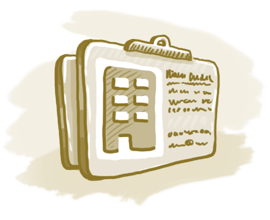Your CRM system has been in place for several years, and countless hours have gone into implementation, training, tweaking and campaigning for its use. Management has been able to use CRM, at least to some degree, to track sales, and other departments such as tech support and customer service have been using it as well.
Even though there seems to have been some rough spots, especially for the sales force, there is at least a tacit agreement that there has been a return on investment – ROI for that CRM application. The most cost-effective thing to do is soldier on and make it work; completely replacing it would be unthinkable.
Or would it?
 A Finer Look at Costs of Your Current CRM System
A Finer Look at Costs of Your Current CRM System
If the opening to this article approximates what is happening in your organization (and we know it’s more widespread than people want to talk about), then it is worth your while to take into account some hidden costs that your CRM system might be generating.
The Sales Force
Traditionally a CRM application has been used by sales management and other company executives to monitor sales, and ensure sales reps achieve their quota. Salespeople themselves have not been very complimentary about CRM—it generally costs them far more time than it saves them.
A salesperson is your company’s most valuable investment as far as personnel goes: a company lives or dies by the success of its sales force. It would therefore make a great deal of economic sense if the CRM system would empower them as much as possible to sell.
How can CRM detract from that empowerment? In several ways. Sales reps are burdened with the amount of data they are required to input into CRM which cannot then be used to assist (sales reps delete) them in meeting their sales quotas. Because CRM is not of assistance, they are forced to resort to other measures such as spreadsheets to track and manage their sales—wasting further time. On top of all that sales reps must regularly create opportunity reports and, often daily, are required to verbally update their sales managers. But wait, there’s more: data kept in salespeople’s own spreadsheets or notes cannot readily be shared, accessed or viewed by sales management or other sales reps. This means yet more time wasted in communicating information kept in this manner.
How much is a salesperson’s time worth? It’s a very simple equation: Any time that a sales rep is not selling equals lost income for the company. That’s a serious cost for a CRM system, and ROI that is not being made.
Sales Management
Although salespeople are entering plentiful data into CRM system, it is often not the right kind of information (or not easily accessible information) so that sales management can retrieve it and easily put together a sales forecast or analysis. Sales managers get around this CRM shortcoming by requiring reports from salespeople, and by holding regular meetings with them for forecasting purposes. In that a sales manager is responsible for the entire sales force, this is a lot of time lost that could be better spent coaching salespeople to improve skills.
What Would Be Better?
Put aside thoughts of how you must preserve the CRM application you’ve got, and take a step back for a moment. Consider this: What if you had a CRM system that addressed these major leaks resulting in lost income to your company?
Today’s leading-edge CRM solution is readily adaptable to your company’s sales process. That makes it logical and intuitive for sales reps to use, and easy for them to save and retrieve important data about in-progress sales. Since they can abandon their own “CRM-bypassing” solutions such as spreadsheets and notes, considerable time is saved right there. Not only that, for the first time their own sales velocity is considerably improved as they interact with a CRM solution that is actually making selling easier.
For sales management, most or all of the data required for analyses and sales forecasts is easily retrievable from CRM—the necessity to constantly interact with salespeople for data-gathering purposes is gone. Sales analysis and reports are easily generated right from CRM. Time spent with sales reps can be used to actually improve their abilities.
When you compare the time and money you are losing with an inefficient CRM solution, it becomes very apparent that replacing it is not only a real possibility, it is a highly cost-effective one.
What does a truly cost-effective CRM solution look like? Find out here.










